- Home
- Anne McCaffrey
Brain Ships Page 3
Brain Ships Read online
Page 3
"He moves the Queen too often," Tia said absently. "I think he likes to watch her hips wiggle when she walks. It's probably something Freudian."
A splutter of static was all that followed that pronouncement, as Moira lost control of the circuit briefly. "My, my," she replied, when she came back online. "You are a little terror. One might almost suspect you of having as much control as a shellperson!"
Tia took that in the spirit it was meant, as a compliment.
"I promise not to tell him your weakness," the ship continued, teasingly.
"What's that?" Tia was surprised; she hadn't known she had one.
"You hate to see the pawns sacrificed. I think you feel sorry for the little guys."
Tia digested this in silence for a moment, then nodded reluctant agreement. "I think you're right," she admitted. "It seems as if everybody can beat them up, and it doesn't seem fair."
"You don't have the problem with an ordinary holoboard game," Moira observed casually.
"That's because they're just little blobby pieces on a holoboard game," Tia explained. "In Battle Chess they're little pikemen. And they're cute." She giggled. "I really love it when Pawn takes Knight and he hits the Knight with the butt of his pike right in the—"
"And that's why you frighten old Phelps-Pittman," Moira said severely, though Tia could tell she didn't mean it. "He keeps thinking you're going to do the same to him."
"Well, I won't have to see old sour-face for another year and a half," she said comfortably. "Maybe I can figure out how to act like a normal girl by then."
"Maybe you can," Moira replied. "I wouldn't put even that past you. Now, how about a game of Battle Chess? Ted Bear can referee."
"Of course," she agreed. "You can use the practice. I'll even spot you a pawn."
"Oh come now! You haven't gotten that much better since I saw you last." At Tia's continued silence, the ship asked, tentatively, "Have you?"
Tia shrugged. "Check my record with Socrates," she suggested.
There was silence as Moira did just that. Then. "Oh, decom it," she said in mock disgust. "You really are exasperating. I should demand that you spot me two pawns."
"Not a chance," Tia replied, ordering the AI to set up the game, with a Battle Chess field in front of her. "You're taking advantage enough of a child as it is."
"Taking advantage of a child? Ha!" Moira said ironically. "You're not a child. I'm beginning to agree with Phelps-Pittman. You're an eighty-year-old midget in a little-girl costume."
"Oh, all right," Tia said, good-naturedly. "I won't give you another pawn, but I will let you have white."
"Good." Moira studied the analog of the board in her memory, as Tia studied the holoboard in front of her. "All right, unnatural child. Have at ye!"
* * *
Moira and Tomas couldn't stay long; by dinner the ship had lifted, and the pad was empty—and the Cade family was back on schedule.
Pota and Braddon spent the evening catching up with the message-packets Moira had brought them—mostly dispatches from friends at other digs, more scholarly papers in their various fields, and the latest in edicts from the Institute. Since Tia knew, thanks to Moira, that none of those edicts concerned her, she was free to watch one of the holos Moira had brought for her entertainment. All carefully screened by the teachers at the Institute, of course, who oversaw the education of every child that was on-site with its parents. But even the teachers didn't see anything wrong with history holos, provided they were properly educational and accurate. The fact that most of these holos had been intended for adult viewing didn't seem to bother them.
Perhaps it was just as well that the Psychs had no idea what she was watching. They would probably have gone into strong hysterics.
Moira had an uncanny ability to pick out the ones that had good scripts and actors—unlike whoever it was that picked out most of the holos for the Remote Educational Department.
This one, a four-part series on Alexander the Great, looked especially good, since it covered only the early parts of his life, before he became a great leader. Tia felt a certain kinship for anyone who'd been labeled "precocious"; and although she already knew that Alexander's childhood had been far from happy, she was looking forward to viewing this.
Having Ted beside her to whisper comments to made it even more fun.
At the end of the first part, even though she was fascinated, she virtuously told Socrates to shut everything down and went into the main room to say good-night to her Mum and Dad. The next courier wasn't due for a while, and she wanted to make her treats last as long as possible.
Both of them were so deep in their readers that she had to shake their elbows to get them to realize she was there, but once they came out of their preoccupied daze, they gave her big hugs and kisses, with no sign of annoyance at being interrupted.
"I have a really good Mum and Dad," she told Ted before drifting off to sleep. "I really, really do. Not like Alexander. . . ."
* * *
The next day, it was back to the usual schedule. Socrates woke her, and she got herself cleaned up and dressed, leaving Ted to reside on the carefully made bed until she returned. When she entered the main room, Pota and Braddon were already there, blinking sleepily over steaming cups of coffee.
"Hello, darling," Pota greeted her as she fetched her milk and cereal from the kitchen. "Did you enjoy Alexander?"
"We-ell, it was interesting," Tia said truthfully. "And I liked the actors and the story. The costumes and the horses were really stellar! But his mother and father were kind of—odd—weren't they?"
Braddon looked up from his coffee with his curly dark hair over one brown eye, and gave his daughter a wry grin. "They were certifiable crazy-cases by our standards, pumpkin," he replied. "But after all, there wasn't anyone around to apply those standards back then."
"And no Board of Mental Health to enforce them," Pota added, her thin, delicate face creasing with a puckish smile. "Remember, oh curious little chick, they were not the ones that had the most influence on Alexander. That was left to his tutors—Aristotle, of course, being the main one—and nurses. I think he succeeded in spite of his parents, personally, and not because of them."
Tia nodded sagely. "Can I come help at the dig today?" she asked eagerly. This was one of the best things about the fact that her parents had picked the EsKays to specialize in. With next to no atmosphere, there were no indigent life-forms to worry about. By the time Tia was five, she had pressure-suit protocol down pat, and there was no reason why she couldn't come to the digs, or even wander about within specified limits on her own. "The biggest sandbox in the universe," Braddon called it; so long as she stayed within eye- and earshot, neither of them minded having her about outside.
"Not today, dearest," Pota said apologetically. "We've found some glassware, and we're making holos. As soon as we're done with that, we'll make the castings, and after that you can come run errands for us." In the thin atmosphere and chill of the site, castings were tricky to make; one reason why Pota discarded so many. But no artifact could be moved without first making a good casting of it, as well as holos from all possible angles—too many times the artifacts crumbled to nothing, despite the most careful handling, once they were moved.
She sighed; holos and castings meant she couldn't even come near the site, lest the vibrations she made walking interfere. "All right," she agreed. "Can I go outside, though? As long as I stay close to the airlock?"
"Stay close to the lock and keep the emergency cart nearby, and I don't see any reason why you can't play outside," Pota said after a moment. Then she smiled. "And how is your dig coming?"
"You mean really, or for pretend?" she asked.
"Pretend, of course," said Braddon. "Pretend is always more fun than really. That's why we became archeologists in the first place—because we get to play pretend for months at a time until we have to be serious and write papers!"
He gave her a conspiratorial grin, and she giggled.
; "We-ell," she said, and drew her face down into a frown just like Doctor Heinz Marius-Llewellyn, when he was about to put everyone to sleep. "I've found the village site of a race of flint-using primitives who were used as slave labor by the EsKays at your site."
"Have you!" Pota fell right in with the pretense, as Braddon nodded seriously. "Well that certainly explains why we haven't found any servos. They must have used slaves to do all their manual labor!"
"Yes. And the Flint People worshipped them as gods from the sky," Tia continued. "That was why they didn't revolt; all the slave labor was a form of worship. They'd go back to their village and then they'd try to make flint tools just like the things that the sky-gods used. They probably made pottery things, too, but I haven't found anything but shards."
"Well, pottery doesn't hold up well in conditions like this," Pota agreed. "It goes brittle very quickly under the extremes of surface temperature. What have you got so far?"
"A flint disruptor-pistol, a flint wrist-com, a flint flashlight, and some more things," she said solemnly. "I haven't found any arrowheads or spear-points or things like that, but that's because there's nothing to hunt here. They were vegetarians, and they ate nothing but lichen."
Braddon made a face. "Awful. Worse than the food at the Institute cafeteria! No wonder they didn't survive—the food probably bored them to death!"
Pota rose and gathered up their plates and cups, stowing them neatly in the dishwasher. "Well, enjoy your lessons, pumpkin. We'll see you at lunch."
She smiled, hugged them both goodbye before they suited up, then went off to the schoolroom.
* * *
That afternoon, once lessons were done, she took down her own pressure-suit from the rack beside the airlock inner door. Her suit was designed a little differently from her parents', with accordion folds at wrists and elbows, ankles and knees, and at the waist, to allow for the growth-spurts of a child. This was a brand new suit, for she had been about to outgrow the last one just before they went out on this dig. She liked it a lot better than the old one; the manufacturer of the last one had some kind of stupid idea that a child's suit should have cavorting flowers with smiling faces all over it. She had been ashamed to have anyone but her parents see her in the awful thing. She thought it made her look like a little clown.
It had come second-hand from a child on a Class Three dig—like most of the things that the Cades got. Evaluation digs simply didn't have that high a priority when it came to getting anything other than the bare essentials. But Tia'd had the bright idea when her birthday came around to ask her parents' superiors at the Institute for a new pressure-suit. And when it came out that she was imitating her parents, by creating her own little dig-site, she had so tickled them that they actually sent her one. Brand new, good for three or four years at least, and the only difference between it and a grown-up suit was that hers had extra helmet lights and a com that couldn't be turned off, a locator-beacon that was always on, and bright fluorescent stripes on the helmet and down the arms and legs. A small price to pay for dignity.
The flowered suit had gone back to the Institute, to be endured by some other unfortunate child.
And the price to be paid for her relative freedom to roam was waiting in the airlock. A wagon, child-sized and modified from the pull-wagon many children had as toys—but this one had powered crawler-tracks and was loaded with an auxiliary power unit and air-pack and full face-mask. If her suit failed, she had been drilled in what to do so many times she could easily have saved herself when asleep. One, take a deep breath and pop the helmet. Two, pull the mask on, making sure the seals around her face were secure. Three, turn on the air and Four, plug into the APU, which would keep the suit heat up with the helmet off. Then walk—slowly, carefully, to the airlock, towing the wagon behind. There was no reason why she should suffer anything worse than a bit of frostbite.
It had never happened. That didn't mean it wouldn't. Tia had no intention of becoming a tragic tale in the newsbytes. Tragic tales were all very well in drama and history, but they were not what one wanted in real life.
So the wagon went with her, inconvenient as it was.
The filters in this suit were good ones; the last suit had always smelled a little musty, but the air in this one was fresh and clean. She trotted over the uneven surface, towing the cart behind, kicking up little puffs of dust and sand. Everything out here was very sharp-edged and clear; red and yellow desert, reddish-purple mountains, dark blue sky. The sun, Sigma Marinara, hung right above her head, so all the shadows were tiny pools of dark black at the bases of things. She hadn't been out to her "site" for several weeks, not since the last time Mum and Dad had asked her to stay away. That had been right at the beginning, when they first got here and uncovered enough to prove it was an EsKay site. Since that time there had been a couple of sandstorms, and Tia was a bit apprehensive that her "dig" had gotten buried. Unlike her parents' dig, she did not have force-shields protecting her trench from storms.
But when she reached her site, she discovered to her amazement that more was uncovered than she had left. Instead of burying her dig in sand, the storm had scoured the area clean—
There were several likely-looking lumps at the farther end of the trench, all fused together into a bumpy whole. Wonderful! There would be hours of potential pretend here; freeing the lumps from the sandy matrix, cleaning them off, figuring out what the Flint People had been trying to copy. . . .
She took the tools her parents had discarded out of the wagon; the broken trowel that Braddon had mended for her, the worn brushes, the blunted probes, and set to work.
* * *
Several hours later, she sat back on her heels and looked at her first find, frowning. This wasn't a lump of flint after all. In fact, it seemed to be some kind of layered substance, with the layers fused together. Odd, it looked kind of wadded up. It certainly wasn't any kind of layered rock she'd ever seen before, and it didn't match any of the rocks she'd uncovered until now.
She chewed her lower lip in thought and stared at it, letting her mind just drift, to see if it could identify what kind of rock it was. It didn't look sedimentary.
Actually, it didn't look much like a rock at all. . . .
Not like a rock. What if it isn't a rock?
She blinked, and suddenly knew what it did look like. Layers of thin cloth or paper, wadded up, then discarded.
Finagle! Have I—
She gently—very gently—pried another lump off the outcropping, and carefully freed it of its gritty coating. And there was no doubt this time that what she had was the work of intelligent hands. Under the layer of half-fused sand and flaking, powdery dust, gleamed a spot of white porcelain, with the matte edge of a break showing why it had been discarded.
Oh, decom—I found the garbage dump!
Or, at least, she had found a little trash heap. That was probably it; likely there was just this lump of discards and no more. But anything the EsKays left behind was important, and it was equally important to stop digging now, mark the site in case another sandstorm came up and capriciously buried it as it had capriciously uncovered it, and bring some evidence to show Mum and Dad what she had found.
Except that she didn't have a holo-camera. Or anything to cast with.
Finally she gave up trying to think of what to do. There was only one thing for it. Bring her two finds inside and show them. The lump of fabric might not survive the touch of real air, but the porcelain thing surely would. Porcelain, unlike glass, was more resilient to the stresses of repeated temperature changes and was not likely to go to powder at the first touch of air.
She went back inside the dome and rummaged around for a bit before returning with a plastic food container for the artifacts, and a length of plastic pipe and the plastic tail from a kite-kit she'd never had a chance to use. Another well-meant but stupid gift from someone Dad worked with; someone who never once thought that on a Mars-type world there weren't very many opportunities to fly kites—
<
br /> With the site marked as securely as she could manage, and the two artifacts sealed into the plastic tub, she returned to the dome again, waiting impatiently for her parents to get back.
She had hoped that the seal on the plastic tub would be good enough to keep the artifacts safely protected from the air of the dome. She knew as soon as the airlock pressurized, though, that her attempt to keep them safe had failed. Even before she pulled off her helmet, the external suit-mike picked up the hiss of air leaking into the container. And when she held the plastic tub up to the light, it was easy enough to see that one of the lumps had begun to disintegrate. She pried the lid off for a quick peek, and sneezed at the dust. The wadded lump was not going to look like much when her parents got home.
Decom it, she thought resentfully. That's not fair!
She put it down carefully on the countop; if she didn't jar it, there might still be enough left when Mum and Dad got back in that they would at least be able to tell what it had been.
She stripped out of her suit and sat down to wait. She tried to read a book, but she just couldn't get interested. Mum and Dad were going to be so surprised—and even better, now the Psychs at the Institute would have no reason to keep her away from the Class Two sites anymore—because this would surely prove that she knew what to do when she accidentally found something. The numbers on the clock moved with agonizing slowness, as she waited for the moment when they would finally return.
The sky outside the viewport couldn't get much darker, but the shadows lengthened, and the light faded. Soon now, soon—
Finally she heard them in the outer lock, and her heart began to beat faster. Suddenly she was no longer so certain that she had done the right thing. What if they were angry that she dissected the first two artifacts? What if she had done the wrong thing in moving them?
The "what ifs" piled up in her head as she waited for the lock to cycle.
Finally the inner door hissed, and Braddon and Pota came through, already pulling off their helmets and continuing a high-speed conversation that must have begun back at the dig.

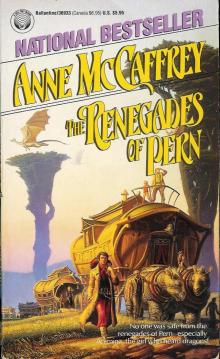 The Renegades of Pern (dragon riders of pern)
The Renegades of Pern (dragon riders of pern)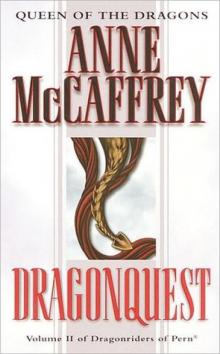 Dragonquest
Dragonquest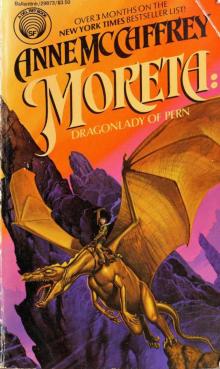 Moreta (Dragonlady of Pern)
Moreta (Dragonlady of Pern)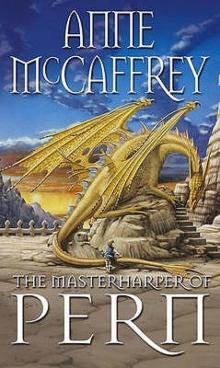 The Masterharper of Pern
The Masterharper of Pern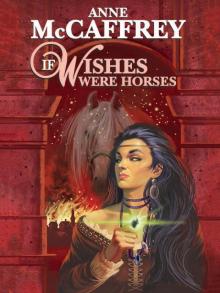 If Wishes Were Horses
If Wishes Were Horses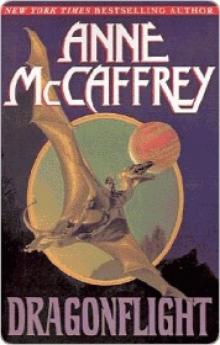 Dragonflight
Dragonflight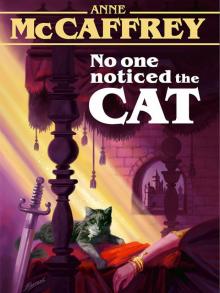 No One Noticed the Cat
No One Noticed the Cat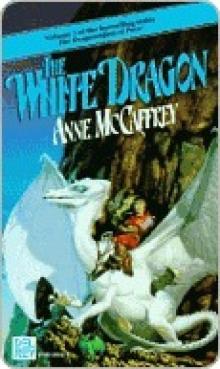 The White Dragon
The White Dragon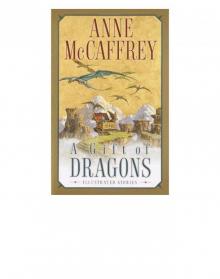 A Gift of Dragons
A Gift of Dragons Harper Hall - Dragonsong
Harper Hall - Dragonsong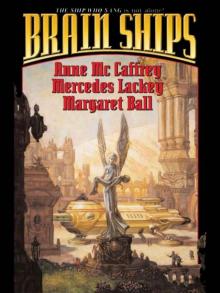 Brain Ships
Brain Ships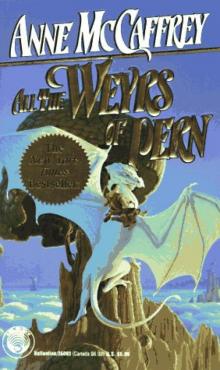 All The Weyrs of Pern
All The Weyrs of Pern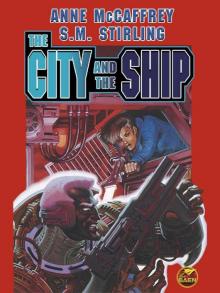 The City and the Ship
The City and the Ship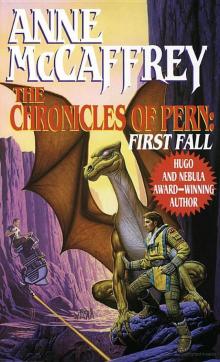 The Chronicles of Pern: First Fall
The Chronicles of Pern: First Fall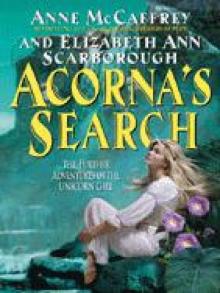 Acorna’s Search
Acorna’s Search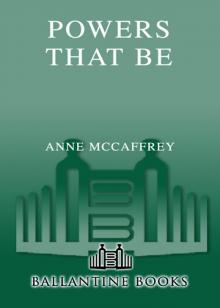 Powers That Be
Powers That Be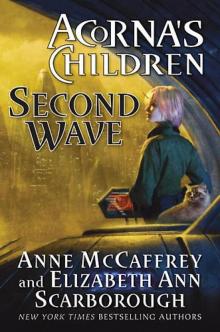 Second Wave
Second Wave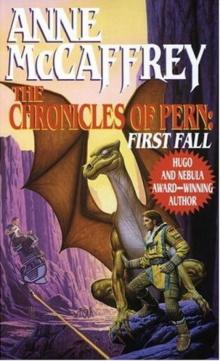 Chronicles of Pern (First Fall)
Chronicles of Pern (First Fall)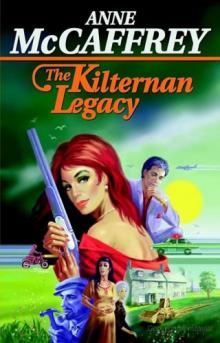 The Kilternan Legacy
The Kilternan Legacy Decision at Doona
Decision at Doona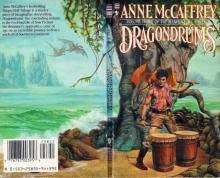 Dragondrums (dragon riders of pern)
Dragondrums (dragon riders of pern)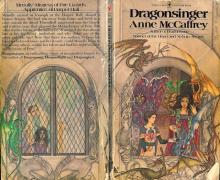 Dragonsinger (dragon riders of pern)
Dragonsinger (dragon riders of pern)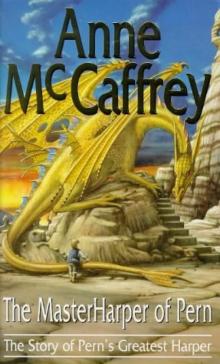 The Master Harper of Pern
The Master Harper of Pern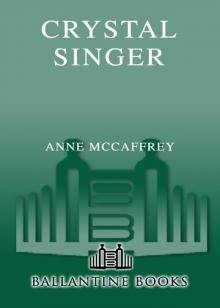 Crystal Singer
Crystal Singer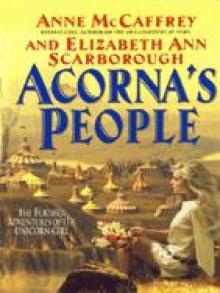 Acorna’s People
Acorna’s People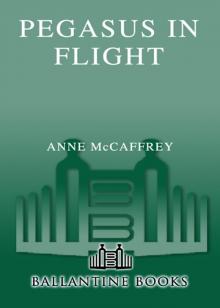 Pegasus in Flight
Pegasus in Flight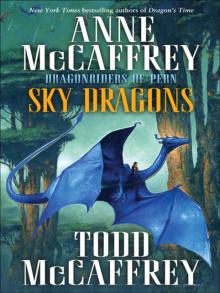 Sky Dragons Dragonriders of Pern
Sky Dragons Dragonriders of Pern Dragonriders of Pern 4 - Dragonsinger
Dragonriders of Pern 4 - Dragonsinger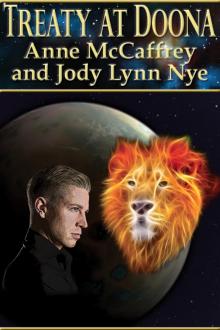 Treaty at Doona
Treaty at Doona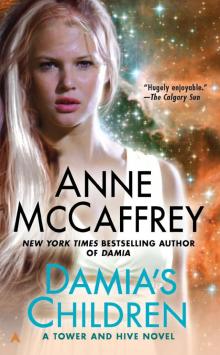 Damia's Children
Damia's Children Stitch In Snow
Stitch In Snow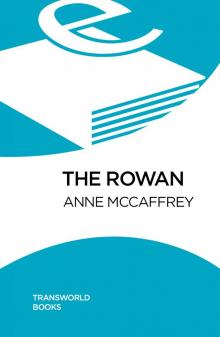 The Rowan
The Rowan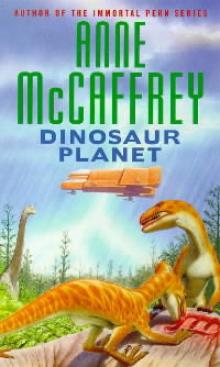 Dinosaur Planet
Dinosaur Planet The Year of the Lucy
The Year of the Lucy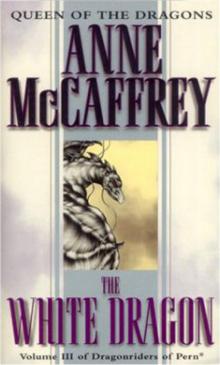 The White Dragon p-4
The White Dragon p-4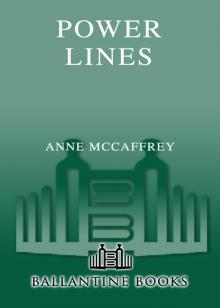 Power Lines
Power Lines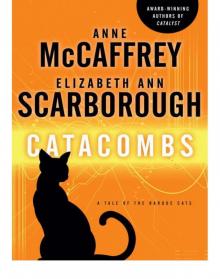 Catacombs
Catacombs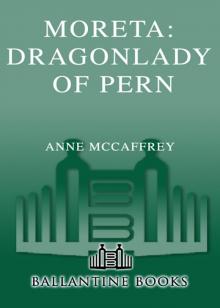 Moreta
Moreta Dragonsinger
Dragonsinger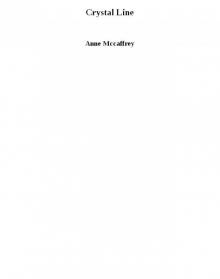 Crystal Line
Crystal Line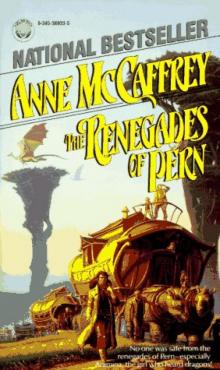 The Renegades of Pern
The Renegades of Pern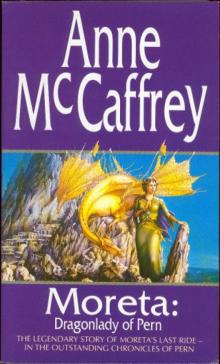 Moreta - Dragonlady of Pern p-8
Moreta - Dragonlady of Pern p-8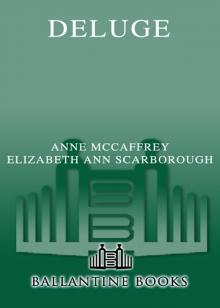 Deluge
Deluge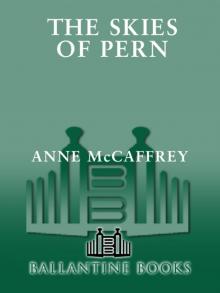 The Skies of Pern
The Skies of Pern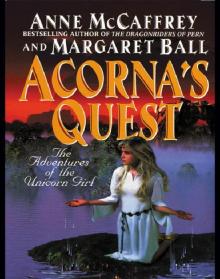 Acorna's Quest
Acorna's Quest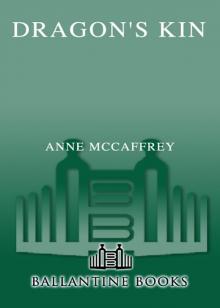 Dragon's Kin
Dragon's Kin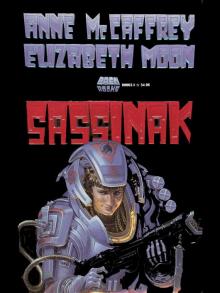 Sassinak
Sassinak![Crystal Universe - [Crystal Singer 03] - Crystal Line Read online](http://i1.bookreadfree.com/i1/03/31/crystal_universe_-_crystal_singer_03_-_crystal_line_preview.jpg) Crystal Universe - [Crystal Singer 03] - Crystal Line
Crystal Universe - [Crystal Singer 03] - Crystal Line Freedom's Landing
Freedom's Landing Acorna’s Quest
Acorna’s Quest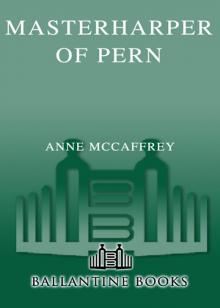 Masterharper of Pern
Masterharper of Pern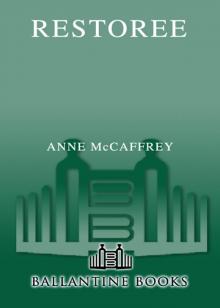 Restoree
Restoree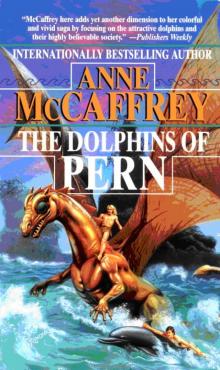 Dolphins of Pern
Dolphins of Pern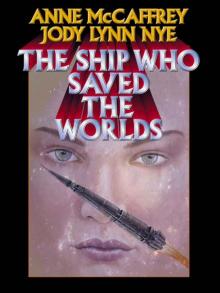 The Ship Who Saved the Worlds
The Ship Who Saved the Worlds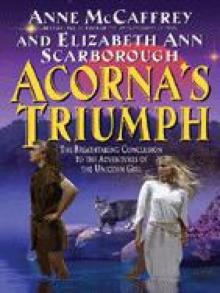 Acorna's Triumph
Acorna's Triumph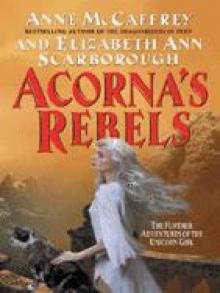 Acorna's Rebels
Acorna's Rebels![[Acorna 08] - First Warning: Acorna's Children (with Elizabeth Ann Scarborough) Read online](http://i1.bookreadfree.com/i1/04/06/acorna_08_-_first_warning_acornas_children_with_elizabeth_ann_scarborough_preview.jpg) [Acorna 08] - First Warning: Acorna's Children (with Elizabeth Ann Scarborough)
[Acorna 08] - First Warning: Acorna's Children (with Elizabeth Ann Scarborough)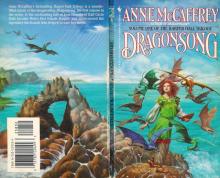 Dragonsong (dragon riders of pern)
Dragonsong (dragon riders of pern) Dragonriders of Pern 6 - Dragondrums
Dragonriders of Pern 6 - Dragondrums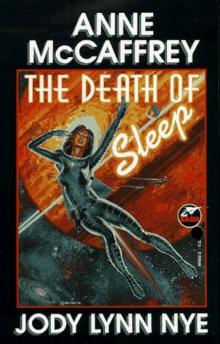 The Death of Sleep
The Death of Sleep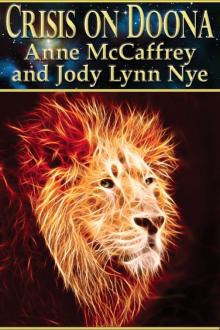 Crisis On Doona
Crisis On Doona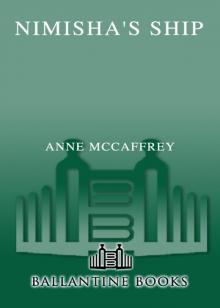 Nimisha's Ship
Nimisha's Ship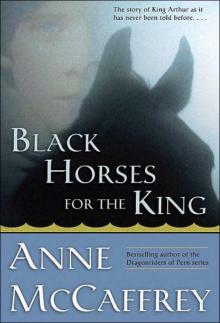 Black Horses for the King
Black Horses for the King Changelings
Changelings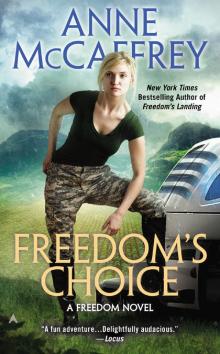 Freedom's Choice
Freedom's Choice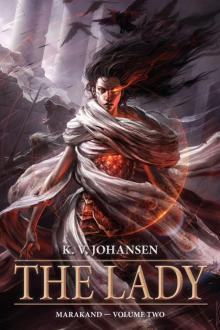 The Lady
The Lady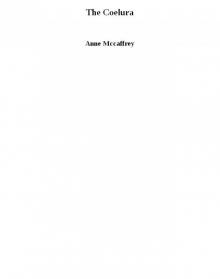 The Coelura
The Coelura Catalyst
Catalyst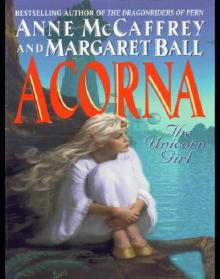 The Unicorn Girl
The Unicorn Girl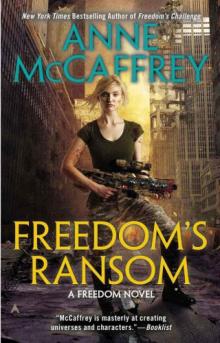 Freedom's Ransom
Freedom's Ransom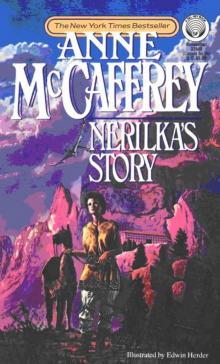 Nerilka's Story
Nerilka's Story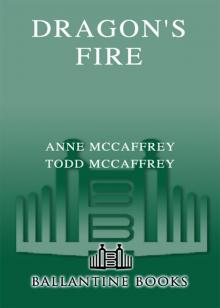 Dragon's Fire
Dragon's Fire Generation Warriors
Generation Warriors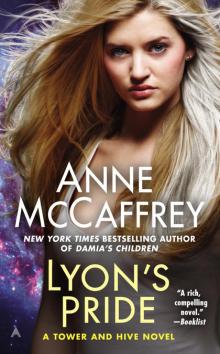 Lyon's Pride
Lyon's Pride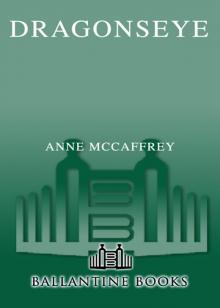 Dragonseye
Dragonseye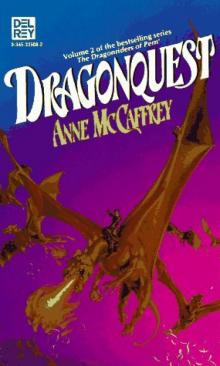 Dragon Quest
Dragon Quest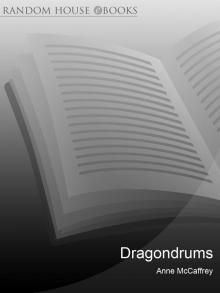 Dragondrums
Dragondrums Dragonsong
Dragonsong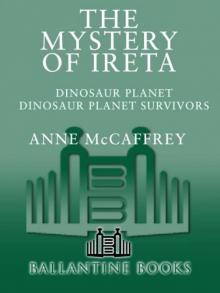 The Mystery of Ireta
The Mystery of Ireta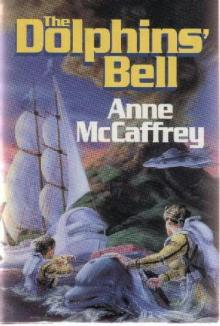 Dolphins' Bell
Dolphins' Bell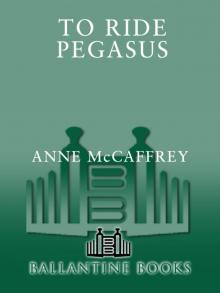 To Ride Pegasus
To Ride Pegasus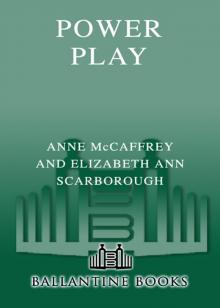 Power Play
Power Play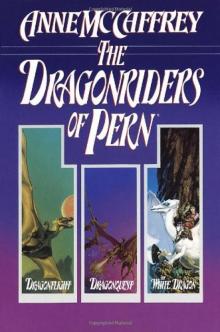 The Dragonriders of Pern
The Dragonriders of Pern An Exchange of Gifts
An Exchange of Gifts The Ship Who Sang
The Ship Who Sang Sky Dragons: Dragonriders of Pern
Sky Dragons: Dragonriders of Pern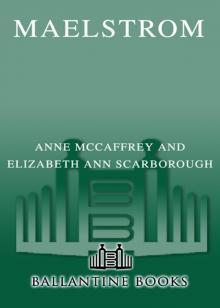 Maelstrom
Maelstrom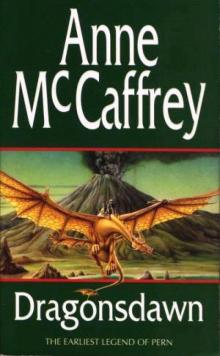 Dragons Dawn
Dragons Dawn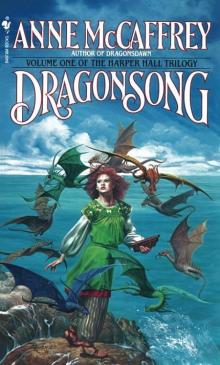 Dragon Song
Dragon Song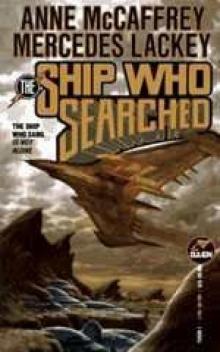 The Ship Who Searched b-3
The Ship Who Searched b-3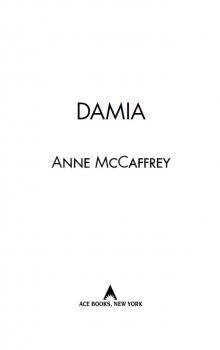 Damia
Damia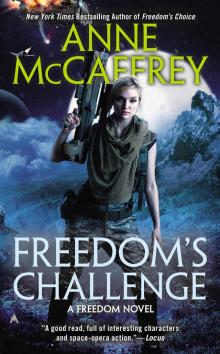 Freedom's Challenge
Freedom's Challenge